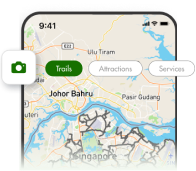Biosurveillance is the systematic and continuous gathering, integration, interpretation, and communication of information on emerging diseases, animal hosts and vectors for early warning and detection. Early response policies and measures reduce the magnitude, and cost of emergency response measures subsequently. The One Health agencies (MOH, NEA, NParks, PUB and SFA) have identified four strategic thrusts under the Whole-of-Government (WOG) Biosurveillance Framework to build up capabilities to proactively monitor disease threats upstream in natural and urban environments.
NParks is leading a S$15 million Biosurveillance Research Programme under RIE2025 to enable early detection and intervention against potential outbreaks of zoonotic diseases. The programme will support research efforts to advance the scientific understanding of zoonotic diseases and their key drivers in Singapore, and to develop and examine evidence-based upstream mitigation strategies.
This builds on existing national biosurveillance efforts and interagency collaboration among One Health agencies and will help to address public health disease challenges brought about by climate change and the transboundary movement of people, animals and vectors, as part of NParks’ efforts to enhance ecological resilience and protect public health and safety. Research efforts under the programme will seek to foster transdisciplinary research collaboration and data sharing through the WOG Biosurveillance Framework, to harness and consolidate expertise across public agencies, research institutes, and industry partners, across key disciplines such as genomics, disease modelling, ecology, and vector biology.
Through these efforts, the programme aims to:
- Build scientific knowledge to establish a more effective system to monitor and detect zoonotic diseases within the urban environment
- Provide insights on how urban development and animal movement may affect zoonotic disease transmission and ecology
- Inform upstream strategies for effective zoonotic disease mitigation, such as through land-use planning, habitat restoration, and targeted animal management measures
- Empower relevant industry and community stakeholders with the required scientific knowledge and safe practices for zoonotic disease prevention.






